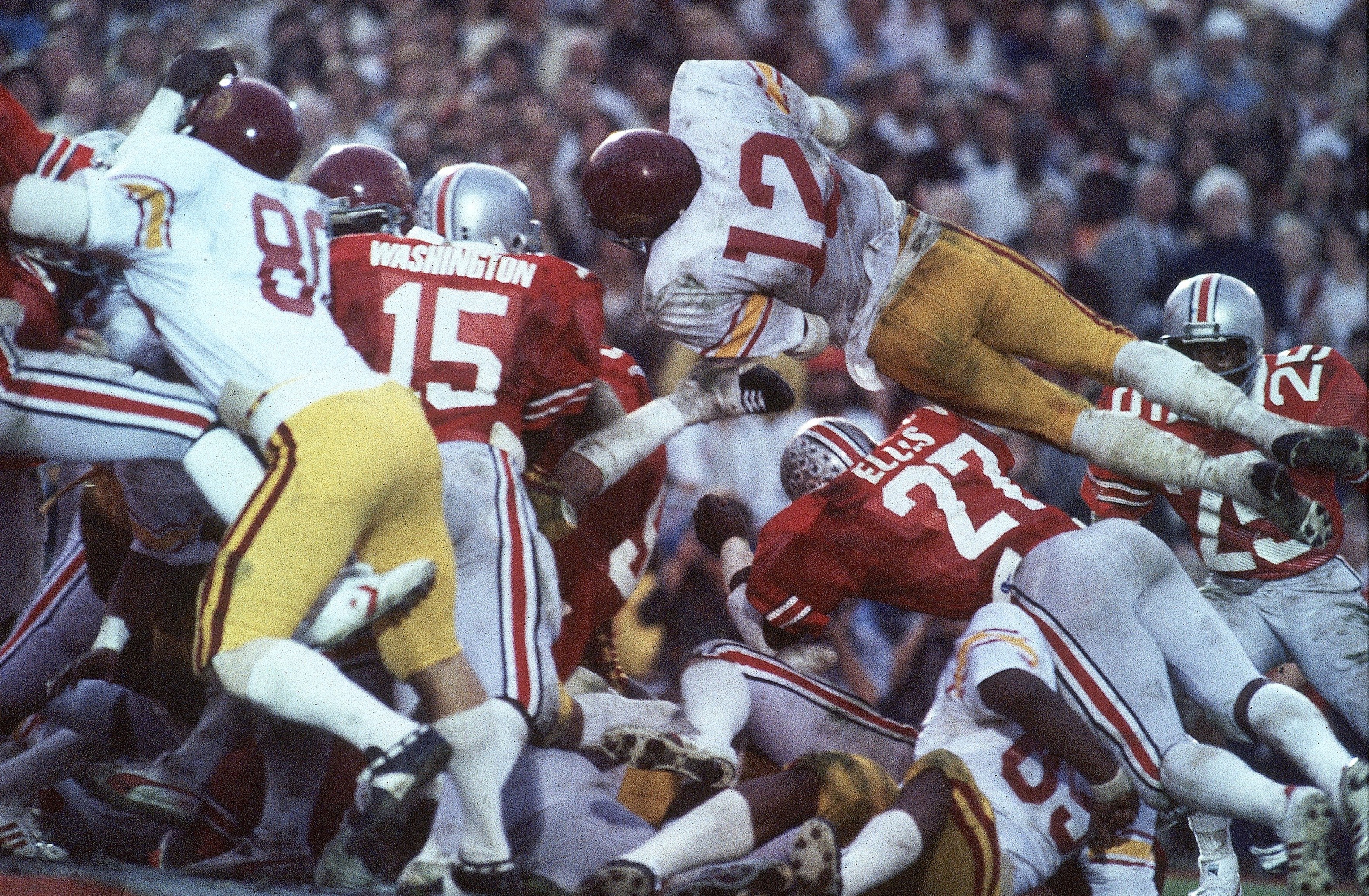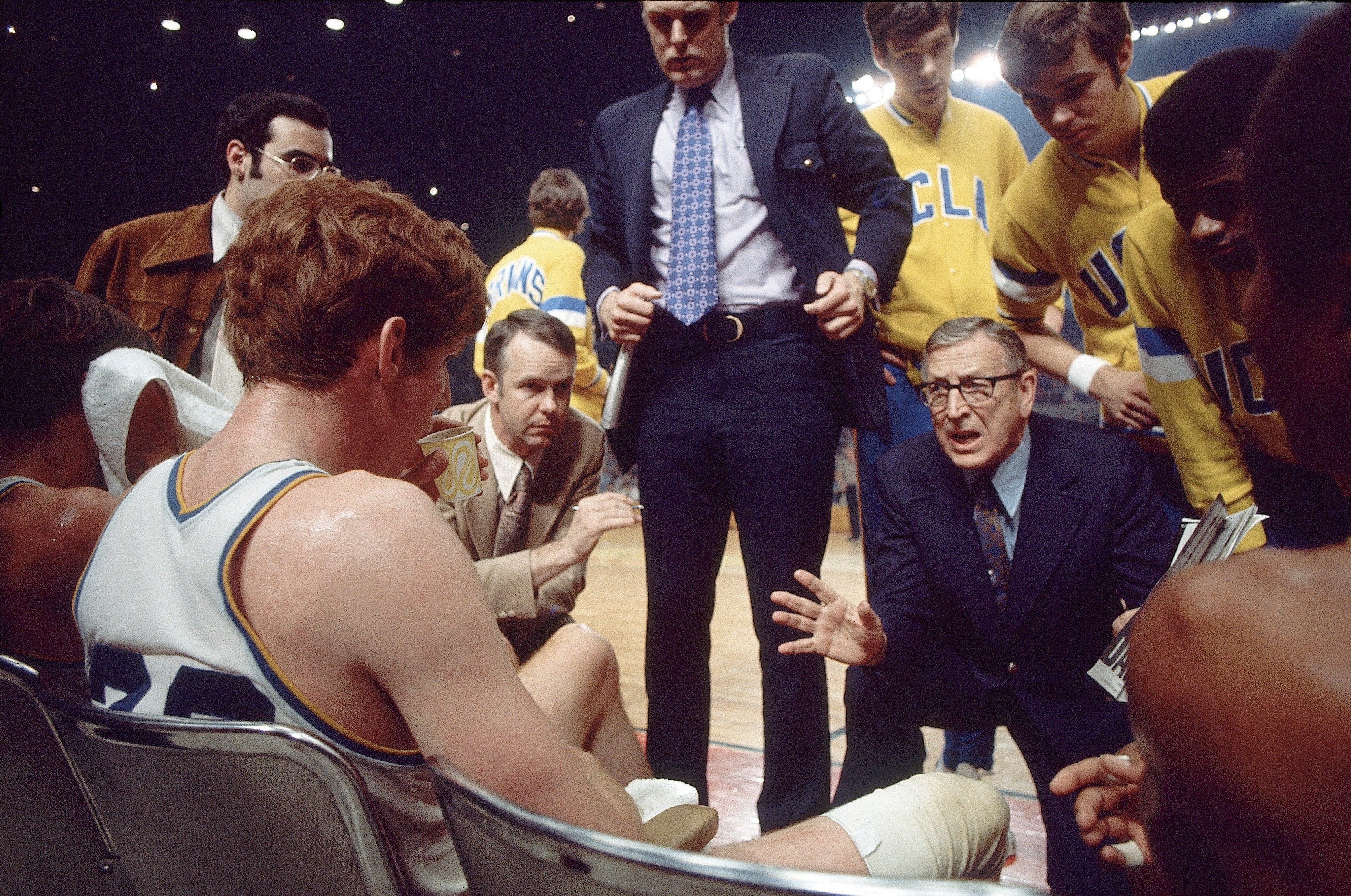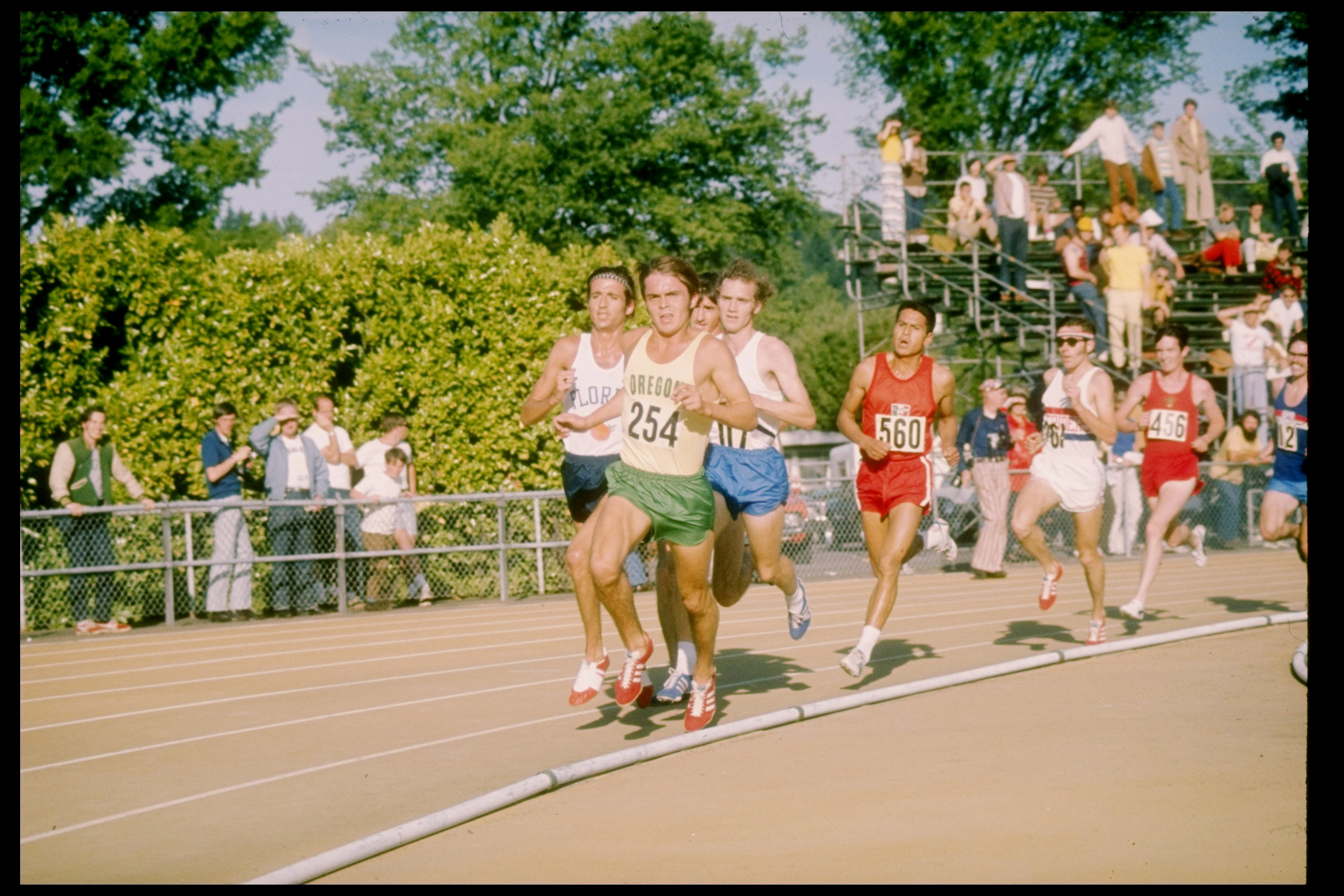Pac-12 ADs Spurn Apple Subscription Streaming Deal, Tragically Dismantle the 108-Year-Old 'Conference of Champions'
Member schools balk at yet another subscription TV pact loaded with incentives but bereft of certain financial payoffs. Indeed, bad media deals have consequences

The smarter way to stay on top of the streaming and OTT industry. Sign up below.
You are now subscribed
Your newsletter sign-up was successful
Already reeling with yet another defection, the remaining members of the venerable Pac-12 collegiate athletic conference were unswayed by Commissioner George Kliavkoff's presentation of a new TV deal with Apple last week.
Instead of accepting the long-awaited TV rights deal, the universities of Arizona, Arizona State and Utah chose follow Colorado out the door of the Pac-12 and to the Big 12 conference, starting officially in fall 2024.
Washington and Oregon, meanwhile, will join the Big Ten next year, along with USC and UCLA, the two schools that set off the Pac-12's death spiral a year ago, when they declared their intention to bolt the conference.
The remaining Pac-12 schools -- Stanford, California, Washington State and Oregon State -- are still weighing their options.
Pac-12 football, the revenue-generating edge of the conference's athletic endeavors, will conclude with one final, undoubtedly weepy season, culminating 108 years of proud history, starting in September.
Just like that, the winningest collegiate athletic conference of them all, with 553 accumulated titles across men's and women's sports, and the former home of iconic athletes spanning Jackie Robinson to Kareem Abdul-Jabbar to Aaron Rodgers, will be no more.
The erstwhile "Pac-8," which replaced the "Athletic Association of Western Universities," which had, in turn, subsumed the league's original moniker (the "Pacific Coast Conference," founded in 1915) was home to John Wooden and his legendary "Pyramid of Success." All Wooden did was manifest an astounding 10 men's college basketball championships in 12 years, while once summoning a seemingly unsurpassable 88-game winning streak.
The smarter way to stay on top of the streaming and OTT industry. Sign up below.
USC baseball, under coach Rod Dedeaux, won 11 College World Series titles and produced Major League legends including Tom Seaver, Randy Johnson and Mark McGwire.
USC football has won 11 national championships and produced seven Heisman Trophy winners, including last season's recipient, quarterback Caleb Williams. USC coach John McKay's victories over Bear Bryant's Alabama in the 1960s and '70s are often cited for helping desegregate sports.
Stanford produced football's John Elway and golf's Tiger Woods.
Nike founder Phil Knight ran track at Oregon and later outfitted Ducks distance-running legend Steve Prefontaine with his prototype running shoes.
Lisa Fernandez, now the associate head coach for the UCLA softball program she played for more than 30 years ago, was the most dominant pitcher the game has ever known, compiling a crazy-low 0.22 earned run average, a 93-7 record and 784 strikeouts.
The list of luminaries from what UCLA hoops legend turned polarizing broadcaster Bill Walton frequently refers to as "the conference of champions" can be rattled off all day long.
It's all gone now, swimming with the fishes alongside the WAC and the Big East.

As Next TV reported last week, the Apple deal would have been a relatively short-term arrangement, kicking off in 2024-25 as a subscription package separate from the Apple TV Plus SVOD service, along the lines of what Apple has done with Major League Soccer.
No financial terms were announced, but the deal's baselines were reported to be far under the guarantees enjoyed by rival collegiate conferences including the Big 12, which beat the Pac-12 to ESPN and Fox's pot of gold last year when it signed a national TV rights extension valued at $2.28 billion.
The Pac-12's Apple deal, ESPN reported, "would grow incrementally based on reaching certain subscription milestones."
Pac-12 athletic director's had heard a similar incentive-laden pitch a decade ago, when the conference, under then commissioner Larry Scott, launched the unwieldy Pac-12 Network regional sports channels. The audience performance never delivered on the revenue promise.
Perhaps more importantly, ESPN and Fox didn't feel the economic imperative to bid against Apple and drive up the Pac-12's TV rights price.
As eloquently detailed by one of college football's most knowledgable pundits, The Athletic's Stewart Mandel, the cause of death for the Pac-12 was the culmination of a dozen years of "hubris, apathy and astounding mismanagement."
The Pac-12's failure wasn't caused by lack of demand.
Mandel writes that it's a "lazy stereotype" to say that West Coasters "don't care" about football -- an assertion that Next TV backs up wholeheartedly. Oregon's Autzun Stadium officially seats 54,000 spectators, but the Ducks averaged 54,950 attendees last season. Defending conference champion Utah also sold out every game.
In years past, Pac-12 schools dominated programs from other conferences on the field.
Consider that from 1970 - 2011, when the Pac-12 signed a then groundbreaking 12-year, $3 billion TV rights deal, the conference had won its semi-annual head-to-head matchup against the Big Ten in the Rose Bowl 25 times vs. just 12 losses.
But throughout the 2010s, the Pac-12's football product suffered. USC, the Pac-12's only true college football "blue blood," was placed on a ruinous probation by the National Collegiate Athletic Association in 2010. A Los Angeles Superior Court judge would later rule that the NCAA's investigation of USC, led by a former University of Miami athletic director Paul Dee, was "malicious."
Fair or unfair, the harsh penalties stemming from former Trojans head coach Pete Carroll's dominant run in the aughts -- which included two national titles, seven straight Pac-12 championships and four straight Rose Bowl victories over the Big Ten -- kneecapped the conference's most successful football program.
And certainly, the University of Southern California compounded its floundering with a series of bad administrative choices, culminating in only one Rose Bowl win and one conference title over the past 13 years.
Meanwhile, Stanford and Oregon, which surged in the early part of the last decade, "leveled off a bit," as Mandel put it, both coming close to national championships but never quite breaking through. Utah, the conference champion the past two seasons, was ultimately vanquished by Big Ten foes in the Rose Bowl each time.
UCLA, which had once rivaled USC in football success, beating Big Ten foes for three Rose Bowl titles in a four-year span in the 1980s, has underperformed for the past 20 seasons.
More than anything, however, it was former commissioner Scott's failure as a media executive that doomed the Pac-12.

As Pac-12 programs delivered middling results on the field, Scott, a former tennis pro who had headed the Women's Tennis Association, was given carte blanch, based on his initial success, by inattentive conference administrators to build the Pac 12 Networks, which ended up struggling with low ratings and subpar pay TV carriage.
Not only did the Pac-12 Networks fail to deliver nearly as much revenue to member universities vs. their rivals in the Big Ten and SEC, in recent years, the channels became an outright liability.
This season, some Pac-12 school athletic programs are even operating in the red, as they work to pay off a $50 million over-payment made to the RSNs rendered by Comcast years ago, but only recently disclosed.
Scott's reputation further suffered several years ago when the universities of Oklahoma and Texas bolted the Big 12, and the Pac-12 didn't move aggressively to poach that conference's remaining schools.
By that time, rival conferences had zoomed past the Pac-12 in terms of TV revenue.
Pac-12 ADs hoped that Scott's successor, George Kliavkoff, a former NBCUniversal, Hulu and A&E Networks exec who took over the conference's reigns in 2021, would restore order and put the conference on a more competitive TV rights footing.
But the best Kliavkoff could come up with was last week's Apple deal.
Daniel Frankel is the managing editor of Next TV, an internet publishing vertical focused on the business of video streaming. A Los Angeles-based writer and editor who has covered the media and technology industries for more than two decades, Daniel has worked on staff for publications including E! Online, Electronic Media, Mediaweek, Variety, paidContent and GigaOm. You can start living a healthier life with greater wealth and prosperity by following Daniel on Twitter today!

